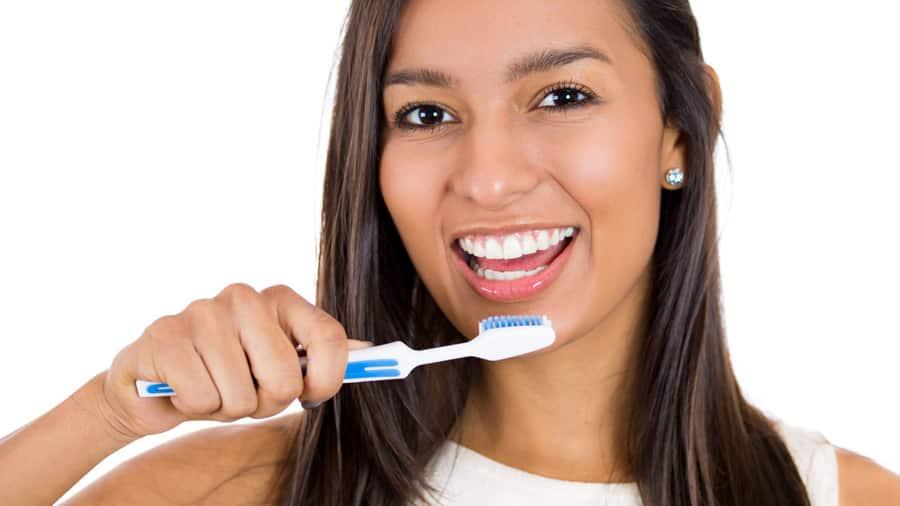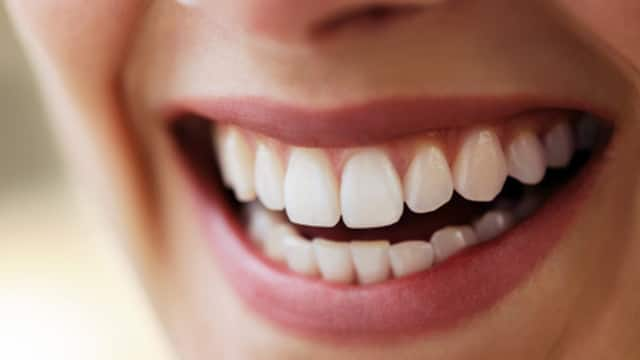What is Teeth Whitening?
Teeth whitening is a process to reduce yellowness on teeth or eliminate stains or black spots,resulting in whiter teeth. Teeth whitening encompasses a range of products and treatments capable of addressing not only surface-level stains but also deeper, intrinsic stains within the tooth enamel. It's crucial to understand that whitening isn't a single procedure but may need repeated treatments or consistent use of whitening products to maintain results. Let’s find out about some of the over-the-counter teeth whitening products that you can safely use at home.
Pick from our best teeth whitening toothpaste for safe and effective teeth whitening at home!
How Can I Whiten My Teeth At Home?
Below are some at home teeth whitening products that can be used as remedies for whiter teeth.
Whitening Toothpaste
There are many types of teeth whitening toothpastes currently available on the market. Some whitening toothpastes contain mild abrasive ingredients designed to gently remove surface stains from the tooth enamel. One such example is the Colgate Visible White whitening toothpaste, which starts whitening teeth in one week. Its formula has whitening accelerators that aid in eliminating tooth stains and gently polishing the tooth surface while still being safe for the enamel.
Other whitening toothpastes work on more intrinsic stains - like Colgate Visible White O2. The Colgate Visible White O2 whitening toothpaste has active oxygen technology that gently whitens your teeth and starts whitening teeth in 3 days. This revolutionary formula releases millions of active oxygen bubbles that can penetrate the tooth enamel and can work on tea, coffee, and smoking stains from within. It is safe for everyday use without side effects or compromising the enamel's integrity.
Whitening Pen
Whitening pens often contain whitening agents like hydrogen peroxide or carbamide peroxide for teeth whitening. With a gel applied directly to teeth after brushing, these pens break down stains gradually. While many are available in the Indian market, it is best to consult your dentist to pick the most effective option
Whitening Strips
Whitening strips are thin, flexible strips which are designed as effective and convenient remedies for whiter teeth. They are pre-coated with a specialized serum containing active whitening ingredients that gently bleach and lift stubborn tooth stains from the tooth enamel.
Using whitening strips is simple; just peel off the protective liner and apply the strips to your upper and lower teeth. These convenient strips can be used discreetly while you go about your daily activities. With regular use as directed, you can achieve a noticeable whitening effect on the teeth.
Home Remedies For Teeth Whitening
People also tend to seek affordable, natural ways to brighten their smiles. Many believe in certain home remedies for teeth whitening, using kitchen staples like orange peel and baking soda or ancient Indian practices like oil pulling. However, their effectiveness and safety can vary; some may provide only temporary or minimal results and can cause potential tooth sensitivity and gum irritation. Here are some common myths around home remedies for teeth whitening:
Myth 1: Oil Pulling Can Whiten Teeth And Remove Stains
Reality: While oil pulling is an ancient Ayurvedic practice involving swishing oil (typically coconut oil, sesame oil, or sunflower oil) in the mouth for a period to improve oral hygiene, its efficacy as a teeth-whitening remedy is debatable. Some believe oil pulling can remove yellow stains and whiten teeth by eliminating plaque buildup and bacteria. However, scientific evidence on its effectiveness for teeth whitening is limited. While oil pulling may offer oral hygiene benefits, its ability to whiten teeth is inconclusive. For genuine whitening, stick to proven methods like whitening toothpaste and professional treatments.
Myth 2: Rubbing Orange Peel On Teeth Whitens Teeth
Reality: Like many citrus products, orange peel is often cited for its natural whitening properties and ability to freshen breath. While some people report noticeable whitening results, the abrasive nature of orange peel may potentially cause enamel erosion with prolonged or excessive use. Therefore, this may not be an effective teeth whitening home remedy in achieving whiter teeth. Proceed with caution, and prioritize long-term oral health over quick fixes.
Myth 3: Baking Soda is An Effective Teeth-Whitening Ingredient
Reality: Baking soda, also known as sodium bicarbonate, is a popular household product found in many cleaning brands and whitening solutions. While it can remove surface stains, its abrasive nature can lead to thinning of the enamel, resulting in increased sensitivity and making teeth more vulnerable to cavities and tooth decay. It is not recommended for sensitive teeth or prolonged use. It's best used sparingly and under professional guidance.
Bonus Tips: Ways to Maintain White Teeth
From making small adjustments to your diet to adopting good oral hygiene practices, these bonus tips can be valuable additions to your teeth whitening regimen.
- Limit consumption of staining beverages like coffee, tea, and red wine
- Use a straw when drinking dark-coloured beverages
- Rinse and swish your mouth with water after consuming staining foods or drinks
- Quit or avoid smoking and using other tobacco products
- Get regular dental cleanings to remove built-up stains
- Maintain good oral health by brushing twice daily with a soft-bristled toothbrush and flossing once a day
- Consider using mouthwash as an addition to the daily dental health routine
In conclusion, while many seek a whiter, brighter smile, exploring safe and effective methods is essential. Home remedies, such as whitening toothpaste, pens, and strips, offer convenient options. However, it's crucial to prioritize both safety and effectiveness. Also, maintaining good oral hygiene and making dietary adjustments can help sustain teeth whitening results in the long term.
Frequently Asked Questions
How can I whiten my yellow teeth at home?
Whitening your teeth at home can be done using various methods, such as whitening toothpaste, pen, and strips. It's important to note that results may vary, depending on usage and the existing condition of your teeth.
How can I whiten my teeth fast at home?
Consider using whitening toothpastes, such as Colgate Visible White Toothpaste, which will help you whiten your teeth at home with regular brushing. With this toothpaste, you can start seeing results in a week.
What is the most powerful home remedy for teeth whitening?
People try teeth-whitening home remedies, like oil pulling, using baking soda, and incorporating natural options like crunchy fruits. However, these remedies are not proven to be efficient and have side effects like tooth sensitivity and damage to enamel. For effective and convenient use, it is better to opt for whitening toothpaste or consult your dentists for professional treatments.
This article is intended to promote understanding of and knowledge about general oral health topics. It is not intended to be a substitute for professional advice, diagnosis or treatment. Always seek the advice of your dentist or other qualified healthcare provider with any questions you may have regarding a medical condition or treatment.
ORAL HEALTH QUIZ
What's behind your smile?
Take our Oral Health assessment to get the most from your oral care routine
ORAL HEALTH QUIZ
What's behind your smile?
Take our Oral Health assessment to get the most from your oral care routine













